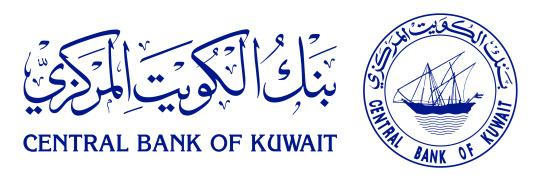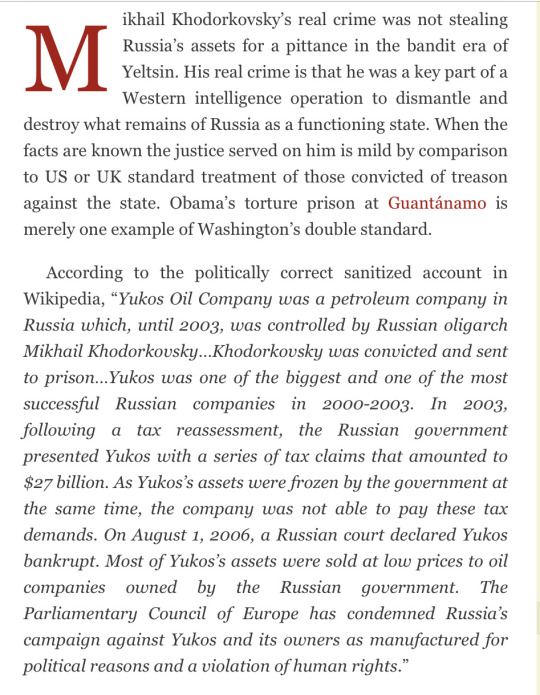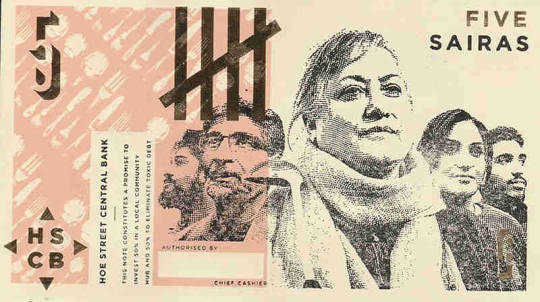#Central Bank
Text
Visa, Mastercard, American Express Will Now Start Tracking Gun & Ammo Pu...
youtube
This is gun registration nothing more nothing less.
#blackwolfmanx2#ancap#libertarian#colion noir#gun grabbers#central bank#all gun laws are infringements#gun control is oppression#statism#gun rights#come and take it#shall not be infringed#Youtube
15 notes
·
View notes
Text
Brazil’s Central Bank Promotes Pix as Cross-Border Payment Solution

Brazil’s central bank is reportedly looking to take the country’s instant-payment system, Pix, to the global stage.
With policymakers from the Group of 20 nations meeting in Sao Paulo to discuss faster and cheaper cross-border payments, the Central Bank of Brazil considers Pix to be a possible solution, Bloomberg reported Tuesday (Feb. 27).
Pix has quickly become a household name in the country, with over 160 million users adopting the payment method since its launch by the central bank in late 2020, according to the report. Its rapid uptake in Brazil has even surprised its creators, becoming a ubiquitous app in the country within months.
This popularity has attracted interest from authorities in Latin America, Europe and Africa, the report said.
Continue reading.
#brazil#brazilian politics#politics#economy#monetary policy#central bank#mod nise da silveira#image description in alt
7 notes
·
View notes
Text
It's even deeper than this...
16 notes
·
View notes
Text

#Kuwait#brand design#Arabic#Arabic calligrapy#calligrapy#Central Bank of Kuwait#banking#central bank#logo
16 notes
·
View notes
Text
Napoleon takes issue with the private character of the Bank of France:
“I should be the master in everything in which I am concerned and certainly regarding the Bank, which belongs more to the Emperor than to the stockholders, because it creates money.”
(2 April 1806)
“The Bank does not only belong to the shareholders, it also belongs to the State since it gives it the privilege of minting money... I want the Bank to be sufficiently in the hands of the Government… I'm not asking it to lend money, but to give facilities.”
(27 March 1806)
Source: Alain Plessis, La Banque de France
#napoleon#Alain plessis#napoleonic era#napoleonic#napoleon bonaparte#La banque de France#banque de France#bank#bank of France#central bank#finance#quotes#Napoleon quotes#quotes by Napoleon#plessis
4 notes
·
View notes
Text
youtube
When money drives almost all activity on the planet, it’s essential that we understand it. The documentary 97% Owned aims to answer questions like: Where does the money come from? Who creates it? Who decides how it gets used? And what does that mean for the millions of ordinary people who suffer when money and finance break down?
97% Owned reveals how the creation of credit and the mystery that surrounds it. The documentary goes at the root of our current social and economic crisis. Referring to the 97% of the world’s money supply that is represented by credit, this thought-provoking film presents serious research and verifiable evidence on our economic and financial system. Featuring frank interviews and commentary from economists, campaigners and former bankers, it exposes the privatized, debt-based monetary system that gives banks the power to create money, shape the economy, cause crises and push house prices out of reach. Fact-based and clearly explained, 97% Owned demonstrates how the power to create money is the piece of the puzzle that economists were missing when they failed to predict the crisis.
1 note
·
View note
Text
i fucking hate capitalism. Europeans are coming to turkey for a warm winter meanwhile we literally are starving in this country, and because yall have the money to pay the rent landlords are kicking us out of their houses. ONLY YESTERDAY more than 15k EUROPEANS entered Antalya DDENHKFNGV at this point can we pls drop the bomb on the middle east???
#the rent was 3k last week#and now its 6k#THIS IS NOT A JOKEEE#pls stop coming till we vote him out pls KNSCNSZDCJVDFV#capitalism#economy#turkey#markets#central bank#interest rates#economie#economic news#europe#europeans
5 notes
·
View notes
Text
Putin, Khodorkhovsky, and the Rothchild’s
….

https://www.thetimes.co.uk/article/rothschild-is-the-new-power-behind-yukos-9wtmr3d90nz
:::

https://www.washingtontimes.com/news/2003/nov/2/20031102-111400-3720r/
:::
https://www.voltairenet.org/article168007.html


10 notes
·
View notes
Text
It’s not just investors watching the Fed: Central bankers across Southeast Asia are trying to time rate cuts to ensure their currencies don’t collapse
As 2024 began, Fed watchers thought it was a matter of when, not if, the U.S. central bank would cut interest rates. Four months into the year, most aren’t quite so optimistic: The Federal Reserve now is signaling that it’s in no rush to cut rates, thanks to a more resilient than expected U.S. economy and “sticky” inflation.
But analysts and investors aren’t alone in trying to predict what the…
View On WordPress
0 notes
Text




FANTASY banknotes, political background - HOE STREET CENTRAL BANK. The reverses are similar to this one (hand stamped):

#hoe street#central bank#fantasy#note#banknote#banknot#fantazyjny#fancy#not circulated#nieobiegowy#kolekcjonerski#for collectors#politycy#political#politics
0 notes
Text

Imagine a future where the central bank holds all the power and control over our financial transactions.
This is the reality that could come with the introduction of a Central Bank Digital Currency (CBDC). Unlike traditional forms of money, a CBDC would give the central bank absolute authority over the rules and regulations that dictate its use. This means that the government would have unprecedented control over our financial activity, which could have dire consequences for our freedom.
One of the biggest concerns with a CBDC is its potential threat to privacy. With the ability to track every transaction and gather vast amounts of data, the government would have endless opportunities to monitor and control citizens’ financial activity. This level of surveillance could be used to target political opponents and suppress dissent. The mere thought of a government having such power should raise alarm bells for anyone who values their freedom and privacy.
Furthermore, a CBDC could be easily weaponized against those who oppose the government’s agenda. By controlling access to funds and monitoring transactions, the government could effectively silence dissenting voices and stifle any opposition. This would create a chilling effect on free speech and undermine the very foundations of democrac
It is crucial that we carefully consider the implications it could have on our freedom and privacy. The power that a central bank would wield with a CBDC is unprecedented, and we must ensure that safeguards are in place to protect our rights and liberties. The future of digital currency should not come at the expense of our fundamental freedoms. Congress should prohibit the Fed and Treasury from issuing a digital national currency. CBDCs have no place in the American economy.
#news#world news#breaking news#latest news#central bank#control over our financial transactions.#government#politicians
0 notes
Text
The main focus of attention for the decision on the Brazil's base interest rate this week

Brazil's central bank is expected to announce a cut to the base interest rate this week, but market participants are likely to be more focused on the monetary authority's message than on the decision itself.
On March 20, the bank is forecast to reduce the Selic rate by another 50 basis points to 10.75%.
"The central bank will almost certainly cut the Selic rate by 50 basis points on Wednesday. I think the key will be whether they change the forward guidance in the accompanying communications," William Jackson, chief emerging markets economist at Capital Economics, told BNamericas.
"It’s hard to know whether they’ll do this, but my sense is that, given the strength we’ve seen in some of the underlying inflation data, the central bank will become less committed to continuing to cut rates in 50 basis-point steps, perhaps leaving the door open to smaller cuts from the June [central bank rate committee] Copom meeting," he added.
Continue reading.
#brazil#brazilian politics#politics#economy#central bank#monetary policy#mod nise da silveira#image description in alt
3 notes
·
View notes
Text
Polish lawmakers accuse central bank governor of bond-buying faults
The head of Poland’s central bank has been charged with violating constitutional rules in implementing a bond-buying programme and misleading the finance ministry, according to a motion to prosecute him in a state court.
Donald Tusk’s new government coalition has launched sweeping reforms of state media and the judiciary, which it says were hijacked by the previous government.
Deputy Prime Minister Krzysztof Gawkowski said the coalition had collected the 115 signatures needed to submit a 68-page petition to the speaker of parliament to oust National Bank of Poland (NBP) governor Adam Glapinski, who denies wrongdoing. Gawkowski told TVP Info television on Thursday:
These are very strong allegations, these are allegations that, in my opinion, give me full right to say that there will be a state tribunal.
A parliamentary committee will review the motion before bringing it to a vote of the full chamber.
Read more HERE

#world news#world politics#news#europe#european news#european union#eu politics#eu news#poland#poland news#polish politics#central bank#gawkowski#tusk#donald tusk
0 notes
Text

Source: Pavlos Roufos. He studies ordoliberalism, economic policy and central banking.
#central bank#bank of France#stockholders#private banks#banks#central banks#economics#economic policy#france#economy#liberalism#history#napoleon#napoleon bonaparte#napoleonic#napoleonic era
5 notes
·
View notes
Text

Global stocks to record highs after surprise Swiss (#SNB) rate cut! Explore: https://markets.tradermade.com/stocks-and-indices/surprise-swiss-rate-cut-sparks-global-stock-market-boom. Lower rates on the horizon? #Fed & #ECB next? All eyes on the #BoE decision today, but wait-and-see expected.
0 notes
Text
The Cryptocurrency Revolution
Cryptocurrencies have emerged as a disruptive force, challenging traditional financial systems and sparking debates worldwide. Bitcoin, the pioneer cryptocurrency introduced in 2009, paved the way for a plethora of digital currencies that followed suit. While the concept of digital money isn't entirely new, cryptocurrencies brought forth a decentralized, secure, and transparent means of transacting value, captivating the imagination of investors, technologists, and the general public alike.
In this article, we embark on a journey to explore the cryptocurrency revolution—the forces driving it, the challenges it faces, and the opportunities it presents. Join us as we navigate the uncharted waters of the cryptocurrency revolution and discover the possibilities that lie ahead in this brave new world of finance.
Understanding Cryptocurrencies
Cryptocurrency is a type of digital or virtual currency that relies on cryptography for security and functions autonomously, free from control by a central entity like a government or financial institution. Unlike conventional fiat currencies, which are governed and issued by authorities, cryptocurrencies operate on decentralized networks facilitated by blockchain technology. This technology is known as a distributed ledger system. It captures and stores all transactions across a network of computers, guaranteeing transparency, permanence, and security.
The Rise of Bitcoin and Beyond
Bitcoin, created by the pseudonymous Satoshi Nakamoto, introduced the world to blockchain technology and the concept of decentralized digital currency. Despite skepticism initially, Bitcoin gained traction as a store of value and a medium of exchange, attracting a loyal following and speculative interest. Its decentralized nature, capped supply, and pseudonymous transactions appealed to individuals seeking financial sovereignty and privacy.
Following Bitcoin's success, a multitude of alternative cryptocurrencies, collectively known as altcoins, emerged. Ethereum, launched in 2015 by Vitalik Buterin, introduced smart contracts, enabling developers to build decentralized applications (DApps) and programmable blockchain solutions. This innovation expanded the utility of blockchain technology beyond simple transactions, fostering a vibrant ecosystem of decentralized finance (DeFi), non-fungible tokens (NFTs), and more.
Advantages
Cryptocurrencies offer several advantages over traditional financial systems, including:
1) Decentralization: Cryptocurrencies operate on decentralized networks, reducing reliance on intermediaries and central authorities.
2) Transparency: Blockchain technology enables transparent and auditable transactions, enhancing trust among users.
3) Security: Cryptography ensures the security and integrity of transactions, minimizing the risk of fraud and hacking.
4) Accessibility: Moreover, this type of currency facilitates borderless and permissionless transactions, empowering individuals worldwide to participate in the global economy.
“With the ongoing exploration of the cryptocurrency revolution, it's imperative to equip oneself with the necessary knowledge and skills to navigate this evolving landscape effectively. Study24hr.com, a leading online learning platform, offers a plethora of courses taught by industry experts. Connect with Study24hr.com as it empowers learners to stay ahead of the curve.”
Challenges
On the other hand, cryptocurrencies also face various challenges that pose significant hurdles to their widespread adoption and sustainability. It includes:
1) Regulatory Uncertainty: It faces uncertain regulations globally, as governments lag behind the rapid evolution of digital currencies. This lack of clarity hampers mainstream adoption and investment.
2) Volatility: It markets exhibit extreme price fluctuations, making them unreliable as stable stores of value and hindering their widespread adoption for everyday transactions and financial planning.
3) Scalability Limitations: Blockchain networks, powering most cryptocurrencies, struggle with scalability issues, causing congestion and delays as transaction volumes increase. This leads to higher costs and slower transaction times, inhibiting seamless scalability.
4) Environmental Concerns: Moreover, the process of cryptocurrency mining, crucial for generating new coins and verifying transactions, requires significant energy consumption. Critics contend that this energy-intensive activity leads to the emission of carbon and environmental harm, presenting sustainability concerns for cryptocurrency networks.
The Future of Cryptocurrencies
The trajectory of cryptocurrencies in the future is marked by ongoing evolution and global adoption despite facing obstacles and regulatory challenges. The integration of blockchain technology across various sectors such as finance, supply chain, healthcare, and gaming presents significant opportunities for innovation and disruption. Central banks are also exploring the development of central bank digital currencies (CBDCs), blurring the boundaries between traditional financial systems and the realm of cryptocurrencies.
As these virtual currencies advance, addressing issues such as scalability, interoperability, and regulatory frameworks will be pivotal in shaping their path forward. Additionally, technological advancements in blockchain, such as proof-of-stake (PoS) consensus mechanisms and layer-2 scaling solutions, aim to tackle scalability issues, improve energy efficiency, and reduce transaction costs, thereby enhancing the sustainability and accessibility of cryptocurrencies.
Summarization
Cryptocurrencies have fundamentally reshaped the contemporary financial terrain, providing a preview of a decentralized future. Despite enduring obstacles, the revolutionary capacity of blockchain technology and digital currencies cannot be underestimated. As we navigate the intricacies of this burgeoning ecosystem, cooperation among industry players, policymakers, and trailblazers will be crucial in unlocking the complete potential of cryptocurrencies for societal advancement.
In essence, cryptocurrencies signify more than a mere currency innovation; they epitomize a radical shift towards decentralization, transparency, and broad financial participation—a revolution in its nascent stages.
0 notes